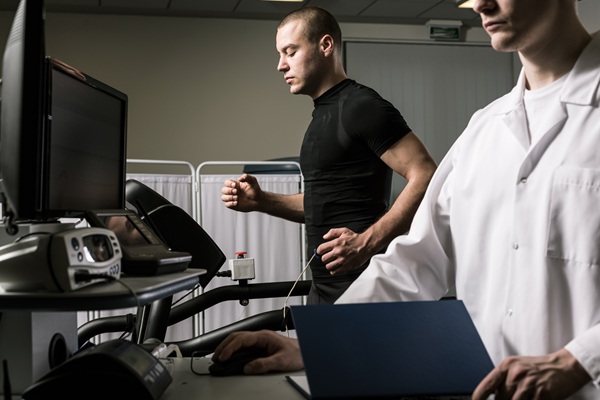Ask a Cardiologist: What Is Endocrinology?

There are many reasons endocrinology may be an area of focus for a cardiologist. This study of the endocrine system can often help shed light on many different diseases and dysfunctions in the body, including various types of heart disease. The system is made up of several important organs and glands that produce essential hormones and distribute them throughout the body.
What are the major components of the endocrine system?
The hormones produced by this life-sustaining system are responsible for human growth and development, sexual reproduction, mood regulation, metabolism and digestion. The following organs and glands are the key parts of the endocrine system:
- Thyroid and parathyroid
- Hypothalamus
- Adrenal Glands
- Ovaries or testes
- Pancreas
- Thymus
- Hypothalamus
- Pineal gland
- Pituitary gland
If one or more of these organs or glands fail to function properly, a drop or increase in hormone levels may occur. This can lead to changes in heart rate, undesirable weight gain, difficulty sleeping or trouble conceiving a child. In more severe cases, diseases of the endocrine system may develop, such as diabetes or thyroid disease, which can increase a person’s risk for heart disease.
How does endocrinology impact heart health?
When hormones fluctuate to unhealthy levels, there is a negative impact on the cardiovascular system. Depending on the type of hormonal change, a patient could be affected by a chronic condition that either leads to heart disease or greatly increases the risk of developing a cardiovascular condition. While there are dozens of complications that may arise from an unhealthy endocrine system, some of the most common issues directly impact heart health and require treatment and care from a cardiologist.
Type 2 diabetes
A person becomes a diabetic when the pancreas no longer produces enough insulin. This hormone breaks down excess sugar in the bloodstream and sends it to the cells as fuel for energy. High levels of glucose in the bloodstream can lead to blockages or a contracting of the blood vessels. In these situations, a stroke or a heart attack is much more likely. In some cases, the long-term poor circulation can ultimately lead to amputation, usually of the feet or legs.
Hypertension
Many people think of high blood pressure as a result of too much fat and salt in the diet combined with high levels of stress. While this is often true, certain hormone imbalances may also contribute to hypertension. Approximately 10% of adults have high blood pressure due to primary aldosteronism, which is caused by a dysfunction of the adrenal gland. Fortunately, this condition is usually reversible.
High triglycerides
A simple blood test can determine a patient's triglyceride levels, which are impacted by more than just diet and exercise. Hormonal changes can raise triglyceride levels, putting an individual at risk for pancreatitis and serious heart disease. A cardiologist will likely recommend positive lifestyle changes along with medication to help address this problem.
Conclusion
Heart health can be directly connected to the endocrine system. Changes in hormone levels will likely impact the cardiovascular system sooner or later. A cardiologist may often need to focus on endocrinology to successfully determine the root cause of certain types of heart disease.
Request an appointment here: https://boyntonbeach.floridapremiercardio.com or call Florida Premier Cardiology at (561) 229-1411 for an appointment in our Boynton Beach office.
Check out what others are saying about our services on Yelp: Read our Yelp reviews.
Recent Posts
A cardiac stress test is a diagnostic tool to evaluate how well the heart performs under physical stress. Cardiologists use this test to detect underlying cardiovascular conditions, monitor treatment progress, or assess the risk of future heart complications. Cardiac stress tests are essential in the early detection and management of heart disease.A cardiac stress test…
Peripheral arterial disease affects blood flow in the arteries, most commonly in the legs. It develops due to plaque buildup in the arteries that causes them to narrow and restrict circulation, possibly leading to discomfort, difficulty walking, and other serious complications. Recognizing the symptoms early and exploring treatment options can help improve the quality of…
Receiving cardiovascular treatment is a critical step in managing heart health, but recovery and long-term are equally vital to ensure long-term wellness. Whether the treatment involves medication management, interventional procedures, or surgery, maintaining a relationship with the cardiologist and following their recovery guidelines is crucial. A structured follow-up plan allows patients to maintain the benefits…
An echocardiogram is a common and painless test that helps doctors evaluate heart health. This test uses sound waves to create images of the heart, allowing cardiologists to examine its structure and function. Many people feel nervous before a medical test, but understanding what to expect can help reduce stress.An echocardiogram is a diagnostic test…


